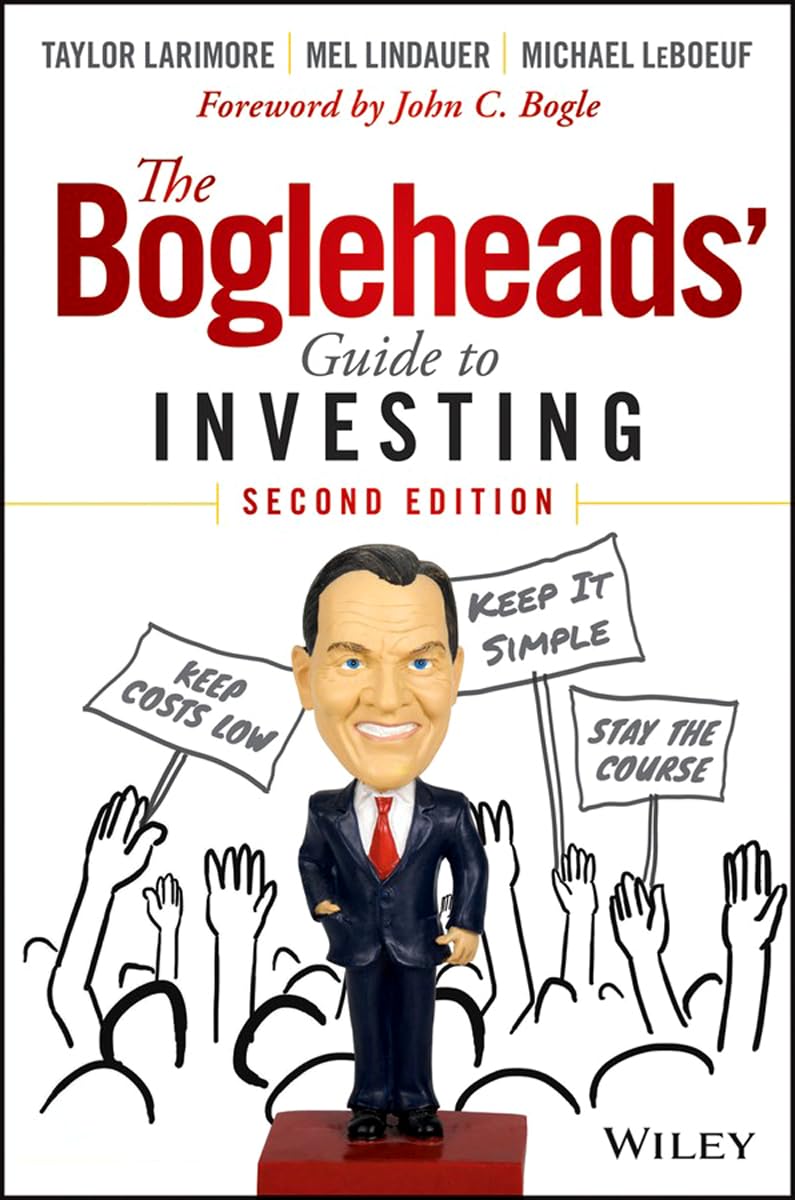[1] - https://www.amazon.com/Random-Walk-down-Wall-Street/dp/03933... [2] - https://www.amazon.com/Bogleheads-Guide-Investing-Taylor-Lar...
For some basic investment literacy, it would not hurt to read "The Bogleheads' Guide to Investing" (https://www.amazon.com/Bogleheads-Guide-Investing-Taylor-Lar...). I've also heard good things about John Bogle's "Little Book of Common Sense Investing" but haven't read it.
<< The wealthy usually have an (often inherited) network of financial advisors, people investing their money, and lawyers, all of whom stand between them and bad decisions >>
More often than not these advisors and lawyers are experts at extracting outrageous annual fees in return for mediocre advice. All you need is a Fidelity account and a few index funds. If you read this book (https://www.amazon.com/Bogleheads-Guide-Investing-Taylor-Lar...) then you will be a more successful investor than the majority of wealthy white collar professionals.
<< The wealthy are typically surrounded by a culture that has always been rich, so has always been able to afford universities and good health, and so can afford to value these highly >>
Thanks to the point above, wealth (with rare exceptions) doesn't survive more than one or two generations, which would present some headwind to this second argument. I spent my childhood split between Manhattan and San Diego. Most of my friends from Manhattan are the descedants of Jews who emigated either immediately before or immediately after the holocaust, very few with any substantial assets. If by rich culture you mean a focus on education, ambition, and professional achievement, then yes, I agree with you. Most of my friends who lived in California had parents who moved there from the midwest in the 60s and 70s and struck it rich as the state was developing, and so much money was made over the next few decades that it didn't seem to matter how much you started with.
<< The wealthy are usually surrounded by other wealthy people, who are not usually expecting (justly or not) financial favors (e.g. a brother who needs medical debt paid off) >>
A wealthy social circle can trap you into a lifestyle that is extremely expensive to maintain. Only my wealthy friends call and invite me on trips that cost $10k+ per person or to fundraising dinners at several thousand dollars a plate. My ''median income'' friends are ecstatic if I pick up a couple hundred dollar bar tab. Assuming you don't allow your family to blatantly take advantage of your wealth to fuel their unnecessary consuming spending, I actually think blue collar millionaires have it ''easier'' here.
<< The psychological difference between growing up rich or working for a high salary, versus a sudden unexpected windfall our of the blue, must be immense. >>
Here I agree with you 100%. Easy come, easy go. It's hard to appreciate what you didn't work really hard for. I see this attitude among lottery winners and heirs alike.


These are Bad Answers and instead you just need to read and obey two books and two books only:
1) https://www.amazon.com/Bogleheads-Guide-Retirement-Planning/...
2)https://www.amazon.com/Bogleheads-Guide-Investing-Taylor-Lar...
If you do this, it will prevent you from being any more screwed than anyone else, regardless of market conditions. You will also not become flamboyantly rich overnight in the way that Crypto speculators do.